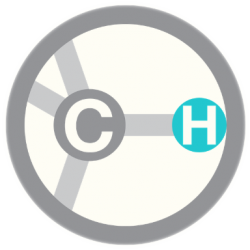Authors: Huw M. L. Davies , Tore Hansen , and Melvyn Rowen Churchill
J. Am. Chem. Soc.,
2000, 122 (13), 3063–3070
Rhodium carbenoids derived from methyl aryldiazoacetates are capable of effective catalytic asymmetric C−H activation of a range of alkanes and tetrahydrofuran by a C−H insertion mechanism. Dirhodium tetrakis(S-(N-dodecylbenzenesulfonyl)prolinate) (Rh2(S-DOSP)4) catalyzed decomposition of methyl aryldiazoacetates in the presence of alkanes results in intermolecular C−H insertions with good control of regioselectivity, diastereoselectivity, and enantioselectivity. The carbenoids derived from methyl aryldiazoacetates are considerably more chemoselective than carbenoids derived from diazoacetates. They strongly favor C−H insertions into secondary and tertiary sites. Formation of side products due to carbene dimerization is not a major problem with rhodium carbenoids derived from aryldiazoacetates.

